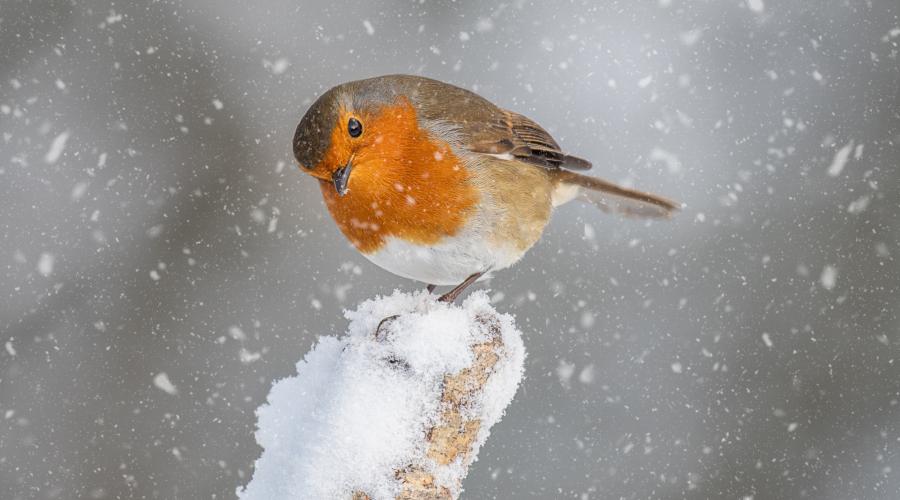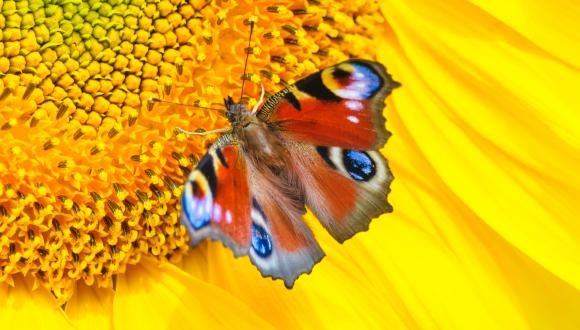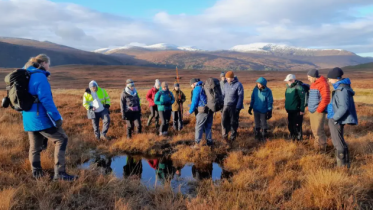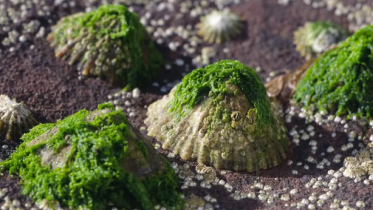
Half of Scots pledge to head outdoors more often and help nature
27 January 2022
Half of Scots pledge to head outdoors more often and help nature
Scots are now spending more time outdoors than they did before the pandemic, and more than half want to take positive action to help the nation’s wildlife.
NatureScot’s latest research into people’s relationship with the outdoors during the pandemic found 77% are heading outdoors at least once a week and 48% expect to visit more often. Additionally 45% indicated they had made their outdoor space more nature-friendly, 52% want to do more to help local wildlife in 2022 and almost 60% of 16-24 year olds are keen to volunteer in nature.
To help people enjoy the outdoors and take individual action to reverse nature loss and tackle climate change, NatureScot has launched its winter Make Space For Nature campaign. It provides ways to care for nature and encourage wildlife into gardens and local green spaces.
NatureScot Chief Executive Francesca Osowska said:
“COP26 in Glasgow has driven home the urgency of the situation we’re all facing. We’ve already lost 25% of our wildlife in Scotland and as we look towards the biodiversity COP15 in China this year, it’s essential we maintain the momentum around restoring and protecting nature. These survey results are encouraging, but we can’t stand still, we all need to take action now.
“Our winter campaign asks everyone to Make Space For Nature in their lives – from feeding birds and providing water for wildlife, to volunteering time for nature. We know nature loss and climate change are inextricably linked. In appreciating the natural world and using nature-based solutions, we all have the power to tackle climate change, help wildlife and have a positive impact on our own physical and mental health.”
The report also found more people continue to feel nature had become more important to their health and wellbeing (58%), a consistent increase over the three surveys, with 61% now stating they felt closer to nature and 73% agreed their time outdoors helped them de-stress, relax and unwind.
Other positive results included the impact of working from home, with 64% of home workers expecting to increase their time spent outdoors, and a significant increase in members of the minority ethnic population spending more time outdoors (62%, up from 48% in 2020). There were also reductions in problems encountered outdoors, including a range of antisocial behaviours, with the exception of litter, which was still experienced by 48% of respondents.
NatureScot suggests ten ways to get outdoors more and help nature this winter:
1. Feed the locals
Bruised or overly-soft fruit can be left out for badgers, foxes and birds. Cut fruit in half and leave on grass or spike on a tree branch. If cats or dogs are nearby, avoid grapes/dried fruit as this can cause them harm.
2. Enjoy lazy gardening
Leaving areas overgrown or filled with leaves gives insects, amphibians and small animals a quiet and cosy place to hide during colder months. Leave borders/herbaceous plants intact with seed heads - many insects overwinter in hollow stems.
3. Notice what's nearby
Many people discovered more local walks during lockdown. There's plenty of wildlife to spot, particularly in urban parks and local paths - from ducks to deer. If feeding ducks, avoid bread and instead try sweetcorn, porridge oats, defrosted frozen peas and bird seed.
4. Volunteer time for nature
One of the best things to do for nature, and have fun along the way, is volunteering. From counting squirrels, to building paths and planting trees, there's a huge range of things to do, whilst meeting new friends, gaining work experience and getting outdoors. Take a look at this list of environmental volunteering organisations or search on the Volunteer Scotland website.
5. Help our feathered friends
Erect bird houses and feeders, clean out existing ones and keep feeders topped up. Other animals and insects also use the houses for shelter. Create a regular feeding schedule and remember to provide water. To attract a range of birds try putting out sunflower hearts, quality peanuts, nyjer seed, and/or high-energy seed mixes. Fat balls are a great energy source during winter.
6. Provide water for wildlife
Garden ponds are a great water source for wildlife but when temperatures drop a prolonged freeze can mean problems for fish and hibernating frogs and newts. Gently crack the ice with a stick to make a hole, or float a ball in the water to stop it freezing. A pond needn't be a large outlay, even using an old washing up bowl of water or a deep saucer of water on a windowsill can help.
7. Keep a lookout
Submit sightings of birds, animals, plants and more, or report any invasive non-native species. It's easy and fun - plus many surveys can be done via a mobile phone. Find a range of surveys in this list of citizen science projects.
8. Take action now
Following these tips helps nature, both immediately and in the future. Spending time in nature means everyone is more likely to care for and respect nature, thereby helping fight nature loss and climate change.
9. Learn outdoors
Everyone can learn outdoors no matter what age. Spot frosty patterns on leaves and spider webs, download plant or bird ID apps, or simply listen to bird song or really notice the seasonal changes.
10. Enjoy the benefits
Many people de-stress, feel energised, and improve their physical health when outdoors. Keep consistent - arrange regular walks with a friend, set a motivational alarm or head out at lunchtime to enjoy daylight.
For seasonally relevant ways to help nature go to https://www.nature.scot/makespace.
Read the latest lockdown survey results:
Read the previous lockdown survey results:






